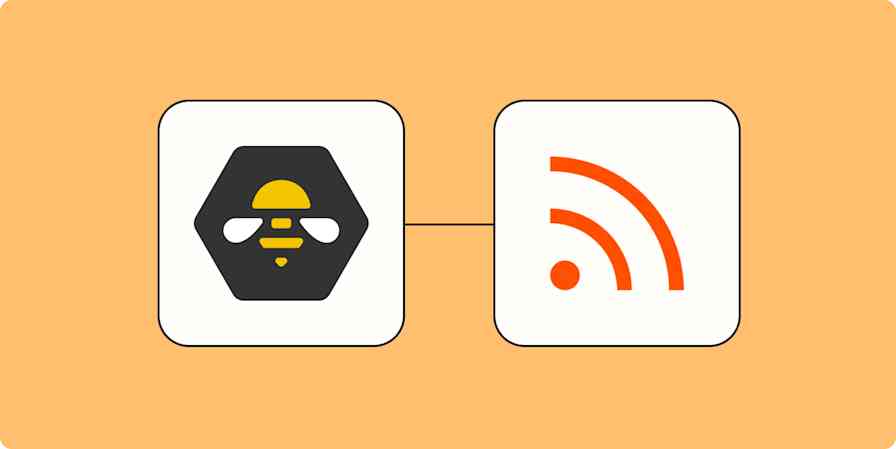Without data, you have to rely on gut instinct or anecdotal evidence when making decisions.
That's not the best way to grow your business. Instead of feelings, you should rely on data, so you can make decisions based on what your customers actually do or need.
Data analytics tools help get you started, but if you rely on manual data entry to connect analysis to action, feedback can get stale and you'll miss your window of opportunity. Zapier can help you integrate your analytics tools with your website, your team, and your reporting tools, so that incorporating feedback becomes an immediate, natural part of your workflow.
Zapier lets you connect the apps you use each day to reduce tedious tasks and free up time for the work that matters most. New to Zapier? See how it works.
Analyze website performance and traffic data
No one should have to tell you something is wrong with your website. The performance of such essential infrastructure should receive the kind of constant monitoring that’s possible only with automation.
These Zaps integrate communication tools with services that monitor your website, so you can get a notification the moment there’s an issue.
Create Slack messages for Dotcom-Monitor status changes
Create Jira tickets for broken pages discovered in DeepCrawl
The ability to automatically monitor your site isn’t only for catching issues. You can also analyze the kinds of traffic arriving at your website and use that data to inform your marketing and lead-generation programs.
Update Cascade goals daily with user traffic data from Google Analytics
Get Slack notifications when contacts visit a certain page on your website (via Tend)
Feed user engagement data into analytics tools
Smart businesses capture as much user engagement data as they can. Your monitoring tools might prove your website is functional, but your users will still suffer if they have to swat away irrelevant messages or endure repetitive phone calls.
Chatbots can automate some of this user engagement, especially lead cultivation and customer support, but hands-off approaches can easily become more annoying than convenient. Your chatbots won’t be effective for long if you can’t improve them.
Use these automated workflows to connect your chatbots to data analytics tools so you can track their performance over time.
Instantly update Google Analytics goals with Instabot user information
Turn new Intercom conversations into Google Analytics measurements
Update Google Analytics goals when Acquire chats end
Phone support can be frustrating for customers who get lost in automated menus and feel it's hard to connect with someone who can help.
Make it easier to spot trends in support needs by connecting your phone or SMS tools with your analytics program or project management program, ensuring each call creates data you can analyze and act on.
Register Toky new calls as events in Google Analytics to improve call center analysis
Create Google Analytics measurements from new Twilio calls
Send Twilio SMS messages for new Jira Service Management requests
Automatically monitor your sales strategy
It’s easy to let sales consume every hour of the day. But if you don’t pause to reflect on your methods, you risk sacrificing long-term victories for small, short-term wins.
High-performing sales teams take monitoring seriously. Basing your sales strategy on data means you can test new things, see their impact, and improve over time, letting you make bigger, better, and faster sales.
Use these automated workflows to connect Google Analytics and Zoho Analytics to your advertising, purchasing, and customer management tools.
Create Google Analytics measurements from new Facebook Ads leads
Create Google Analytics measurements from new Stripe payments
Learn more about how to turn Google Analytics insights into actionable tasks.
Tracking sales progress is easiest across integrated tools, but once a sale moves to the meeting or phone call stage, data can be more elusive. Use these Zaps to keep track of new meetings and calendar invites.
Instantly update Google Analytics goals when a new 24sessions meeting is scheduled by a guest
Create Google Analytics measurements from Calendly Invitees
Get high-level insight into team performance
Internal analysis is important, too. With Zapier, you can automatically feed your team’s actions into project management tools, make those new actions trackable, and connect that improved work back to your analytics tools.
To start this feedback loop, use these workflows to help you automatically turn your team’s communication and collaboration into trackable actions.
Create new Weekdone items for Google Calendar events
Create new Weekdone items from saved Slack messages
Create new Weekdone items from completed RoundPie tasks
Before you can properly assess your team’s performance, that data has to be in a central place. These workflows connect to project management and to-do list apps, so you can easily track your team’s actions.
Create new rows on Google Sheets for new dones on I Done This
To complete the loop, connect your team’s work back to your analytics tools.
Learn from your results and repeat the cycle
Zapier automation enables the feedback cycle to spin with less effort, meaning you can act faster and iterate based on more up-to-date information. Without working harder, your team can be more efficient and effective. Every action from your team and reaction from your customer becomes an insight that your organization can use to improve.





